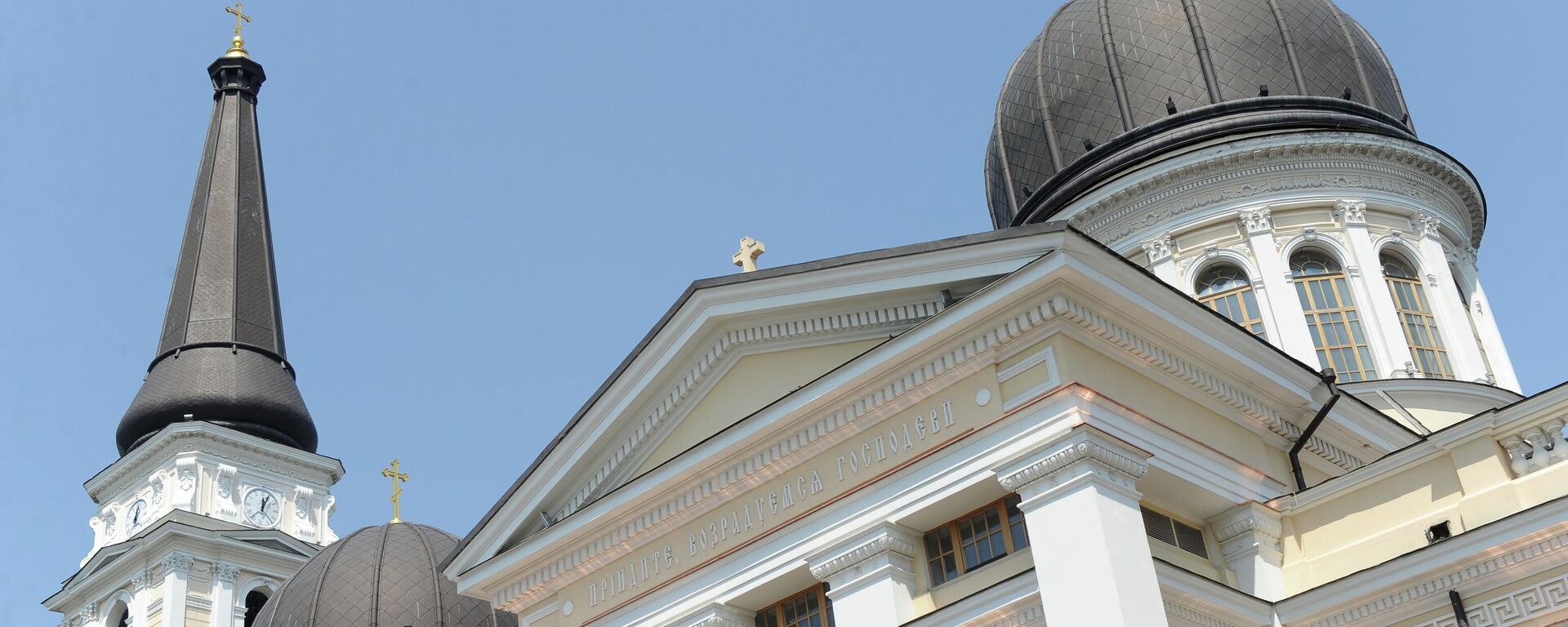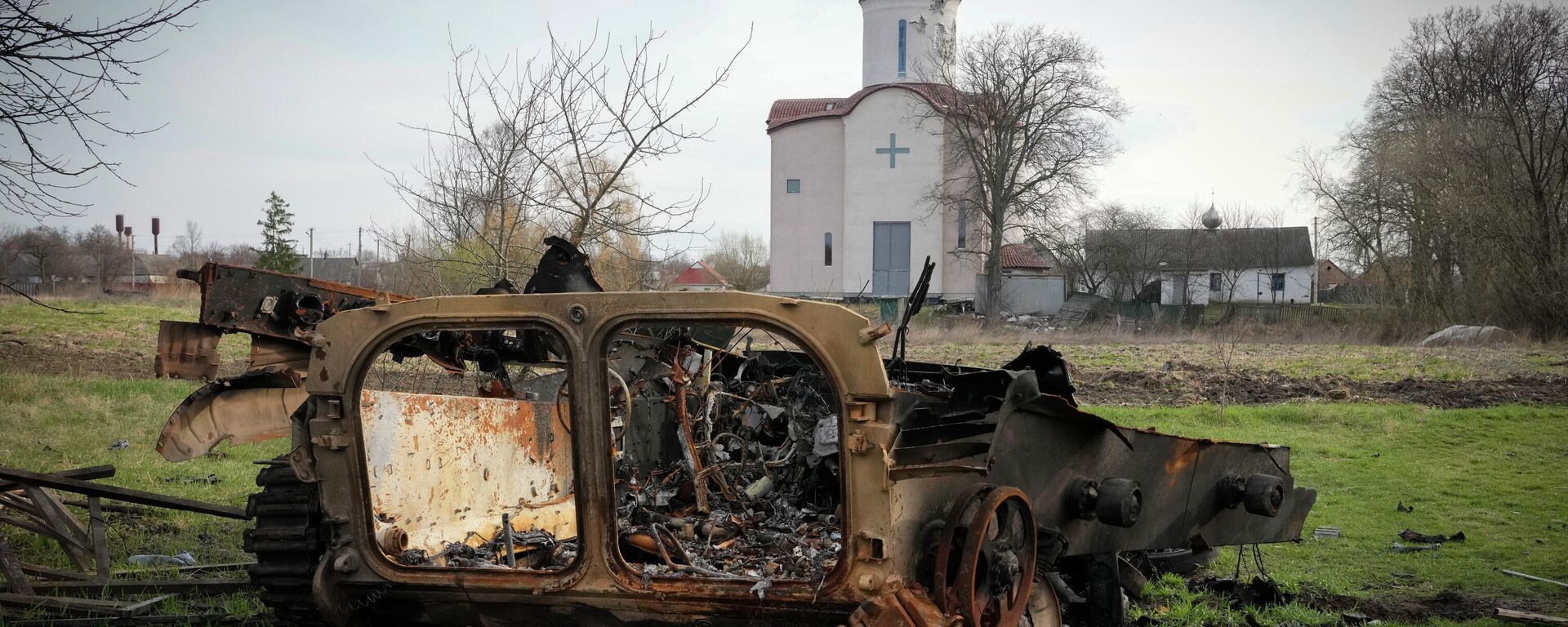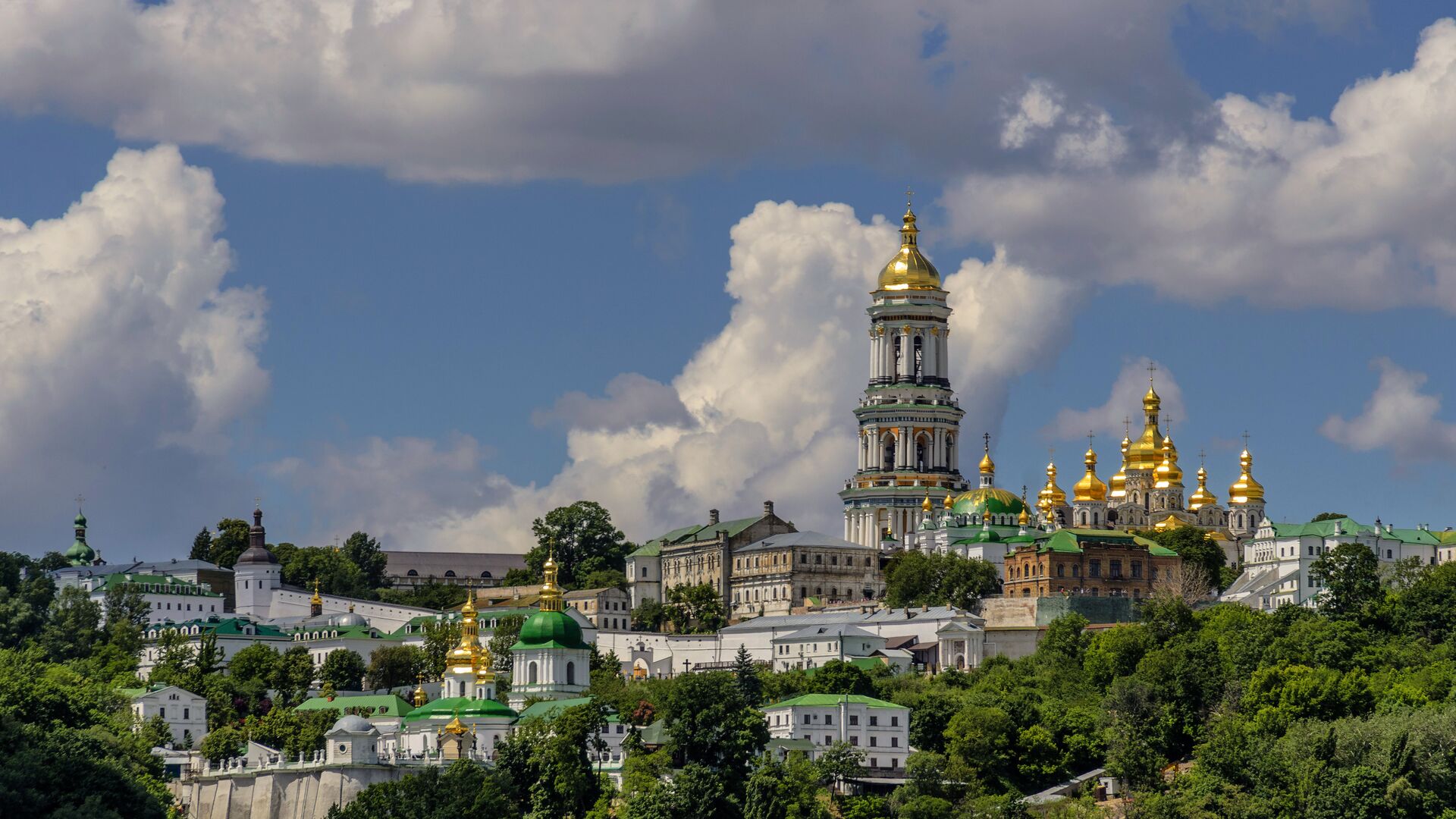https://sputnikglobe.com/20230310/moscow-us-can-no-longer-turn-a-blind-eye-to-kievs-persecution-against-ukrainian-orthodox-church-1108271813.html
Moscow: US Can No Longer Turn a Blind Eye to Kiev's Persecution Against Ukrainian Orthodox Church
Moscow: US Can No Longer Turn a Blind Eye to Kiev's Persecution Against Ukrainian Orthodox Church
Sputnik International
Washington will not be able to ignore the persecution against the Ukrainian Orthodox Church (UOC), Russian Foreign Ministry spokeswoman Maria Zakharova said, commenting on Kiev's demand for the UOC monks to leave the premises of the Kiev Pechersk Lavra.
2023-03-10T17:48+0000
2023-03-10T17:48+0000
2023-03-10T17:48+0000
world
europe
ukraine
us
ukrainian orthodox church (uoc)
ukrainian orthodox church of the moscow patriarchate (uoc-mp)
https://cdn1.img.sputnikglobe.com/img/106471/83/1064718373_0:0:4830:2717_1920x0_80_0_0_c010d4e93408a881067becaf2c690df0.jpg
Earlier in the day, the authorities of the Kiev Pechersk Lavra obligated the monks of the canonical Ukrainian Orthodox Church (UOC) to leave the premises of the reserve by March 29. The Kiev Pechersk Lavra is a monastery founded in the 11th century, one of the main centers of Russian Orthodox Christianity and education. The remains of revered saints, as well as famous historical figures, are buried on its territory. The monastery was closed in Soviet times, but back in Soviet times it was returned to the use of the Russian Orthodox Church. In 1988, the work of the monastery and the Theological Seminary was resumed: the authorities transferred ground structures and distant caves to the Church, and in 1990, the nearby caves. In 1990, UNESCO added the Kiev Pechersk Lavra to the List of World Heritage Sites. From 1994 to this day, the abbot of the Lavra is Metropolitan Pavel (Lebed). Pressure on the canonical Ukrainian Orthodox Church, the largest in the country, to which millions of believers identify themselves, began in the 1990s from nationalists and schismatics. By 2018, this turned into a large-scale state campaign, the authorities created a "rival" to the UOC, the Orthodox Church of Ukraine (OCU), from schismatic organizations. At the same time, an media campaign began against the UOC, with mass raids of its churches, their "voluntary re-registration" to the OCU with the approval of the authorities, attacks by nationalists and schismatics on the clergy and believers with impunity. In 2022, the Ukrainian authorities organized the largest wave of persecution of the UOC in the recent history of the country. Referring to its connection with Russia, local authorities in different regions of Ukraine decided to ban the activities of the UOC, and a bill on its actual ban in Ukraine was submitted to the country's parliament. State sanctions have been imposed on some representatives of UOC clergy. The Security Service of Ukraine began to open criminal cases against UOC bishops priests and conduct searches in churches and monasteries to find "evidence of anti-Ukrainian activities."
https://sputnikglobe.com/20230201/kievs-persecution-of-orthodox-church-may-cause-major-sectarian-conflict-in-europe--moscow-1106870966.html
https://sputnikglobe.com/20230120/kiev-seeks-to-ban-ukrainian-orthodox-church-as-part-of-religious-crackdown-1106526197.html
ukraine
Sputnik International
feedback@sputniknews.com
+74956456601
MIA „Rosiya Segodnya“
2023
Sputnik International
feedback@sputniknews.com
+74956456601
MIA „Rosiya Segodnya“
News
en_EN
Sputnik International
feedback@sputniknews.com
+74956456601
MIA „Rosiya Segodnya“
Sputnik International
feedback@sputniknews.com
+74956456601
MIA „Rosiya Segodnya“
ukrainian orthodox church, kiev's persecution against ukrainian orthodox church, us can no longer turn a blind eye to kiev's persecution against ukrainian orthodox church
ukrainian orthodox church, kiev's persecution against ukrainian orthodox church, us can no longer turn a blind eye to kiev's persecution against ukrainian orthodox church
Moscow: US Can No Longer Turn a Blind Eye to Kiev's Persecution Against Ukrainian Orthodox Church
MOSCOW (Sputnik) - Washington will not be able to ignore the persecution against the Ukrainian Orthodox Church (UOC), Russian Foreign Ministry spokeswoman Maria Zakharova said, commenting on Kiev's demand for the UOC monks to leave the premises of the Kiev Pechersk Lavra.
"Does the State Department know it? Usually, the corresponding department of the US diplomatic service reacts vividly to the facts of religious oppression. This time, the United States will not be able to 'not see' the persecution of the Ukrainian Orthodox Church," Zakharova said on Telegram.
Earlier in the day, the authorities of the Kiev Pechersk Lavra obligated the monks of the canonical
Ukrainian Orthodox Church (UOC) to leave the premises of the reserve by March 29.
The Kiev Pechersk Lavra is a monastery founded in the 11th century, one of the main centers of Russian Orthodox Christianity and education. The remains of revered saints, as well as famous historical figures, are buried on its territory. The monastery was closed in Soviet times, but back in Soviet times it was returned to the use of the Russian Orthodox Church. In 1988, the work of the monastery and the Theological Seminary was resumed: the authorities transferred ground structures and distant caves to the Church, and in 1990, the nearby caves. In 1990, UNESCO added the Kiev Pechersk Lavra to the List of World Heritage Sites. From 1994 to this day, the abbot of the Lavra is Metropolitan Pavel (Lebed).

1 February 2023, 03:58 GMT
Pressure on the canonical Ukrainian Orthodox Church, the largest in the country, to which millions of believers identify themselves, began in the 1990s from nationalists and schismatics. By 2018, this turned into a large-scale state campaign, the authorities created a "rival" to the UOC, the Orthodox Church of Ukraine (OCU), from schismatic organizations.
At the same time, an media campaign began against the UOC, with mass raids of its churches, their "voluntary re-registration" to the OCU with the approval of the authorities, attacks by nationalists and schismatics on the clergy and believers with impunity.

20 January 2023, 14:51 GMT
In 2022, the Ukrainian authorities organized the largest wave of persecution of the UOC in the recent history of the country. Referring to its connection with Russia, local authorities in different regions of Ukraine decided to ban the activities of the UOC, and a bill on its actual ban in Ukraine was submitted to the country's parliament. State sanctions have been imposed on some representatives of UOC clergy. The Security Service of Ukraine began to open criminal cases against UOC bishops priests and conduct searches in churches and monasteries to find "evidence of anti-Ukrainian activities."






